Women's Leadership Committee Members
WLC Chair

Zhen Chen, MB, PhD
Associate Professor
Arthur Riggs Diabetes Metabolism Research Institute
City of Hope, California
Zhen Bouman Chen, MB, PhD, is an Associate Professor in the Arthur Riggs Diabetes Metabolism Research Institute and a faculty member of the Irell and Manella Graduate School of Biological Sciences at City of Hope, California. She obtained her medical training in Basic Medical Sciences from Peking University, China and pursued her PhD study in vascular biology at University of California Riverside. Dr. Chen performed her postdoctoral research at Academia Sinica in Taiwan and UC San Diego, in part funded by an American Heart Association (AHA) postdoctoral fellowship and a Pathway-to-Independence K99 award from the National Institute of Health (NIH).
Dr. Chen’s lab at City of Hope studies epigenetic regulation of vascular biology in the context of diabetes and diabetic complications. Her studies have been funded by NIH R01 and R35 grants, the Chan Zuckerberg and the Ella Fitzgerald Foundations.
Dr. Chen has been a member of AHA since 2011 and was a finalist for ATVB Junior Investigator Award for Women and a recipient of the New Investigator Award from American Physiological Society Cardiovascular Section and Springer Junior Investigator Award from North American Vascular Biology Organization. She is passionate about advancing the careers of women in science and medicine through mentorship and scientific outreach.
WLC Chair-Elect
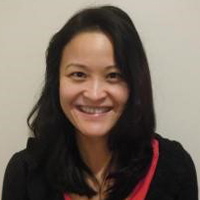 Patricia Nguyen, MD
Patricia Nguyen, MD
Associate Professor
Division of Cardiovascular Medicine
Stanford University
Director, Cardiovascular Imaging
VA Palo Alto
Visit Dr. Nguyen's faculty page
Dr. Patricia Nguyen was born in Saigon, Vietnam and immigrated with her family to United States. She graduated from Johns Hopkins Medical School and completed her residency at Columbia University and her cardiovascular training at Stanford University. Following her clinical fellowship, she worked in the laboratory of Dr. Joseph Wu to evaluate the efficacy and safety of stem cell therapies. Her research currently focuses on deciphering the immune-mediated mechanisms underlying cardiovascular diseases using a systems immunology approach and applying novel techniques in molecular imaging, iPSC technology, single cell sequencing, and computational biology.
WLC Immediate Past Chair
 Hanrui Zhang, MB, PhD
Hanrui Zhang, MB, PhD
Herbert Irving Assistant Professor of Medical Sciences
Cardiometabolic Genomics Program, Division of Cardiology, Department of Medicine
Columbia University Irving Medical Center
New York, New York
Dr. Hanrui Zhang is the Herbert Irving Assistant Professor of Medical Sciences in the Department of Medicine-Cardiology, at Columbia University Irving Medical Center. She received her Ph.D. in Pharmacology from the University of Missouri, followed by postdoctoral studies in functional genomics at the University of Pennsylvania. The goal of her laboratory is to elucidate the mechanisms and therapeutic implications of macrophage heterogeneity and plasticity in cardiometabolic disease. The main areas of research in her laboratory include (1) Functional genomics and mechanistic studies of candidate genes and genetic variants inspired by human genome-wide association studies of cardiometabolic traits (2) Unbiased CRISPR screening to discover novel regulators of macrophage function, in particular macrophage efferocytosis, and investigate their roles in homeostasis and diseases, including atherosclerosis (3) Disease modeling and functional genomic studies in human iPSC-derived macrophages. She has been an AHA member since 2007 and is a former member of the ATVB Early Career Committee (2012-2016). She joined the ATVB Women’s Leadership Committee in 2016 and is now serving as the Immediate Past Chair of the committee. She is also the Chair-Elect of the ATVB & PVD Council Investigator in Training Award Committee, a Technical Editor of the ATVB Journal, and the 2020 Irvine H. Page Junior Faculty Research Award Winner.
WLC Members
 Kamilah Ali, PhD
Kamilah Ali, PhD
Associate Professor
Touro College of Osteopathic Medicine
Harlem, New York
Kamilah Ali is an Associate Professor at Touro College of Osteopathic Medicine in Harlem. At Yale University, she received a Masters and PhD in Pharmacology with emphasis on bacterial drug resistance in the laboratory of Dr. Dieter Sӧll. Later, she completed an atherosclerotic lipid and lipoprotein metabolism post-doctoral fellowship at University of Pennsylvania with Dr. Daniel Rader. Dr. Ali’s research interest is apolipoprotein and lipoprotein biology in context of atherosclerosis. She is also involved in community-based intervention and research efforts in hypertension. Dr. Ali has trained and mentored > 40 undergraduates and medical students.
 Cassandra Clift, PhD, BME
Cassandra Clift, PhD, BME
Post-Doctoral Research Fellow
Brigham and Women’s Hospital, Harvard Medical School
Department of Medicine, Division of Cardiology
Center for Interdisciplinary Cardiovascular Sciences
Boston, Massachusetts
Visit Dr. Clift's faculty page
Dr. Cassandra Clift is a cardiovascular extracellular matrix biologist utilizing mass spectrometry techniques to evaluate clinical aortic valve disease samples, therapeutic biomaterials, and engineered cardiovascular disease models. She received her Bachelor of Science from Worcester Polytechnic Institute in Biomedical Engineering and went on to obtain her PhD in 2021 in Biomedical Sciences the Medical University of South Carolina in the Department of Cell and Molecular Pharmacology and Experimental Therapeutics. Dr. Clift has been an AHA member since 2018 and has been a recipient of the AHA Early Trainee Poster Award as well as the Cardiovascular Outreach Award. Dr. Clift's has been funded via NHLBI Predoctoral fellowships (T32, F31), the AHA Post-Doctoral Fellowship, and the NHLBI MOSIAC K99/R00 transition program. Under the mentorship of Dr. Elena Aikawa Harvard Medical School and Brigham and Women's Hospital, Dr. Clift's post-doctoral research fellowship is focused on using multi-omics strategies and bioengineered models of calcific aortic valve disease to understand the role of biomechanics, cell-cell, and cell-ECM interactions on valve epigenetics and proteomics.
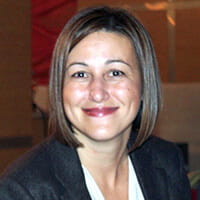 Ebru Erbay, MD, PhD
Ebru Erbay, MD, PhD
Associate Professor
Division of Cardiology
Department of Medicine
University of California
Los Angeles, California
Ebru Erbay received a PhD from University of Illinois at Urbana Champaign in 2004 and MD from Ankara University in 1998. She pursued a post-doctoral fellowship at Harvard School of Public Health to study the role of organelle stress in metabolic and inflammatory diseases. Dr. Erbay was a faculty in Bilkent University from 2010 to 2017 and in Cedars-Sinai Medical Center and University of California in Los Angeles from 2017-2022 prior to becoming a founding principal investigator of Altos Labs. Currently, Dr. Erbay is a Cardiology faculty in the University of California in Los Angeles.
By combining a deep interest in the molecular regulation of organelle stress with in vivo disease modeling, Dr. Erbay’s research strives to illuminate novel mechanisms that drive aging-associated, complex metabolic and inflammatory diseases such as atherosclerosis and metabolic dysfunction-associated steatotic liver disease. Dr. Erbay was a recipient of the Sabri Ulker International Science Award for her research in the field of immunometabolism. Her academic research has been continuously supported by funding from NIH, European Research Council Starting Grant and EMBO Installation Grant.
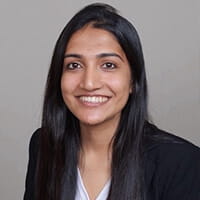 Naba Farooqui, MBBS
Naba Farooqui, MBBS
PGY-2, Internal Medicine,
Mayo Clinic, Rochester, Minnesota
Naba Farooqui is a categorical PGY-2 Internal Medicine resident at the Mayo Clinic in Rochester, Minnesota. She completed her medical school at the All India Institute of Medical Sciences (AIIMS) in New Delhi where she served as the editor-in-chief of her medical school yearbook, won several awards including the best undergraduate student in Biochemistry and graduated as the best outgoing medical student. She subsequently did a research year at Lerman’s lab at Mayo Clinic, where she worked on stem cell therapies in atherosclerotic renal artery stenosis. She has broad research interests from stem cell and monoclonal antibody research to metabolic diseases. She is interested in pursuing a clinical cardiology fellowship and venturing into preeclampsia and interventional cardiology research. She is an active member of the Mayo Fellows’ Association and the trainee representative for the Graduate Education Committee at Mayo Clinic. She is an avid reader, a passionate researcher & educator and in her free time, she enjoys watching formula 1 and exploring new restaurants, cafes and cultural events with friends and family.
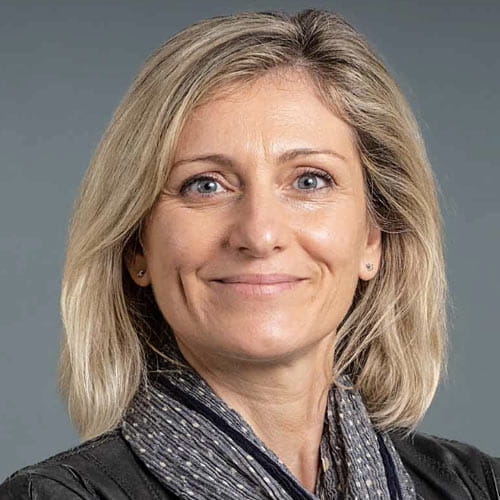 Chiara Giannarelli, PhD, FAHA
Chiara Giannarelli, PhD, FAHA
Associate Professor
NYU Langone Health
New York, New York
Visit Dr. Giannarelli's faculty page
Chiara Giannarelli, MD, PhD, is an Associate Professor of Medicine and Pathology at the Department of Medicine, Division of Cardiology, and Cardiovascular Research Center at NYU Langone NYU Grossman School of Medicine, New York. She completed her medical degree and subsequent residency and clinical fellowship before pursuing a PhD in pharmacological sciences and pathophysiological mechanisms of cardiovascular disease at the University of Pisa, Italy. In 2008, she relocated to the USA, where she conducted a research fellowship at the Icahn School of Medicine at Mount Sinai, eventually being appointed Assistant Professor in 2014. Joining NYU in 2021, Dr. Giannarelli's research integrates systems pharmacology and systems immunology with molecular biology and imaging to uncover novel mechanisms underlying cardiovascular disease. A groundbreaking accomplishment of her laboratory was the pioneering use of single-cell proteomic and transcriptomic analyses (CyTOF, CITE-seq, scRNA-seq) of human vascular samples, recognized as a significant milestone in inflammation research in atherosclerosis (Nature Medicine, 2019). Dr. Giannarelli has leveraged systems immunology and drug repositioning approaches to identify new compounds targeting the innate immune system in atherosclerosis, mitigating plaque inflammation (Nature Cardiovascular Research, June 2023). Her work has also explored how SARS-CoV-2 infection triggers proatherogenic immune responses in the human vasculature (Nature Cardiovascular Research, October 2023). Continuously funded by the NIH/NHLBI, NIH/NCATS, and prestigious programs such as the American Heart Association Strategically-Focused Research Networks, Chan-Zuckerberg Foundation, and PolyBio Foundation, Dr. Giannarelli's expertise in translational systems immunology and drug repurposing approaches has made her a vital contributor to large multiple-PI programs.
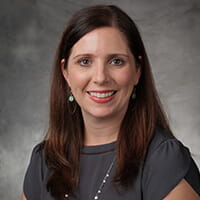 Laura Hansen, PhD
Laura Hansen, PhD
Assistant Professor of Medicine
Associate Program Director, Basic Research Scientist Pathway
Division of Cardiology, Department of Medicine
Emory University School of Medicine
Atlanta, Georiga
Visit Dr. Hansen's faculty page
Dr. Laura Hansen is an Assistant Professor in the Department of Medicine – Cardiology at Emory University School of Medicine since 2019. She received her BS in Bioengineering from the University of Pittsburgh in 2007 and PhD in Bioengineering from the Georgia Institute of Technology in 2012 where she studied the mechanics of blood vessel walls and changes associated with different disease states. She then completed her post-doctoral fellowship studying the RAGE receptor in peripheral artery disease at Emory University in Cardiology. Her laboratory studies the interactions between satellite cells and the vasculature. Satellite cells are skeletal muscle progenitor cells that are known to play an important role in muscle repair after injury and adaptation to exercise. However, her lab focuses on a previously underexplored role of satellite cells in vascular growth. This area is of particular interest in the context of peripheral artery disease (PAD), where patients suffer from ischemic tissue damage but treatment options are still limited. The lab has shown that ischemia stimulates satellite cells and is exploring ways to harness their angiogenic properties in vivo via exercise therapy or through therapeutically delivered cells. Dr. Hansen has been a member of the AHA since 2012 and received an AHA Career Development Award in 2019. Her lab is currently funded by the NIH as well as an AHA Collaborative Science Award.
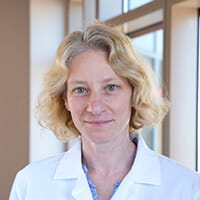 Iris Jaffe, MD, PhD
Iris Jaffe, MD, PhD
Professor
Tufts Medical Center
Boston, Massachusetts
Iris Jaffe, MD, PhD, is the Executive Director of the Molecular Cardiology Research Institute (MCRI) at Tufts Medical Center and the Elisa Kent Mendelsohn Professor of Molecular Cardiology at Tufts University School of Medicine. Dr Jaffe earned her BA in biochemistry, PhD in molecular biology, and MD degrees from the University of Pennsylvania. She completed her residency training in internal medicine at Massachusetts General Hospital, clinical cardiology fellowship at Brigham and Women’s Hospital, and vascular biology research fellowship in the MCRI at Tufts Medical Center.
She started her independent research lab in the MCRI and joined the Cardiology Division as a Clinical Attending at Tufts Medical Center in 2005. Dr. Jaffe rose to the rank of Professor of Medicine in 2017 and became the 3rd MCRI Director in 2016. Her research has changed our understanding of how cardiovascular risk factors like aging and obesity lead to vascular disease and how this differs by sex. Her lab identified the function of the mineralocorticoid receptor in human vascular cells and how the receptor contributes to blood pressure regulation, atherosclerosis, vein graft failure, pulmonary hypertension, and preeclampsia, among other conditions. More recently, her research has expanded to cardio-oncology and the impact of cancer drugs on the vasculature.
Dr Jaffe’s research has been continuously funded by NIH since 2005 and she has published over 100 research articles. She has received many honors, including the Established Investigator Award from the American Heart Association and is an elected member of the American Society of Clinical Investigation and the Association of American Physicians. She is Associate Editor of Circulation and was a standing member of the NIH Vascular Cell and Molecular Biology Study Section, which she chaired from 2017 to 2019. Dr. Jaffe has a longstanding commitment to advancing women’s health and careers of women. In 2010 she founded and was the original Chair of the Women in Medicine Committee in the Department of Medicine which now serves all of Tufts Medical Center. She is co-PI on the Tufts Building Interdisciplinary Careers in Women’s Health K12 grant, leads the Women’s Cardiovascular Health Research Group across Tufts Medicine and Tufts University and serves as the Faculty Mentor for the Tufts University MD/PhD program SWAPS program (Support for Women as Aspiring Physician-Scientists).
 Hong S. Lu, MD, PhD, FAHA
Hong S. Lu, MD, PhD, FAHA
Associate Professor
Saha Cardiovascular Research Center & Department of Physiology
College of Medicine
University of Kentucky
Lexington, Kentucky
Dr. Lu is an associate professor of Saha Cardiovascular Research Center and Department of Physiology at the University of Kentucky. She received her medical degree at Zhejiang University School of Medicine, China, and PhD degree in Molecular Genetics at Kanazawa University, Japan. She had her post-doctoral training in Dr. Alan Daugherty’s laboratory at the University of Kentucky. Her research interest includes the pathogenesis and mechanisms of atherosclerosis and aortic aneurysms. She has been an AHA member (ATVB Council) since 2003 and served as a technical editor of ATVB since 2017. She joined the ATVB Women’s Leadership Committee in July 2022.
 Suellen D. Oliveira, MS, PhD, FAHA
Suellen D. Oliveira, MS, PhD, FAHA
Assistant Professor
University of Illinois, Chicago - College of Medicine
Chicago, Illinois
Visit Professor Oliveira's lab
I am an Assistant Professor and head of the Vascular Immunobiology Lab at the University of Illinois at Chicago. Originating from Brazil, I completed my M.Sc. in Cardiovascular Pharmacology and PhD in Immunobiology from a premier research institute - the Carlos Chagas Filho Biophysics Institute at the Federal University of Rio de Janeiro. In the US, my research focuses on dissecting the role of endothelial cells in pulmonary vascular inflammation and infection, which has already culminated in data that resulted in several manuscripts, secured grant funding, and earned prestigious awards from distinguished societies, including the AHA. Beyond research activities, my commitment extends to fostering the next generation of scientists and physicians from diverse backgrounds and propelling them to positions in renowned institutions worldwide. Outside of my scientific endeavors, I can deny how passionate I am about art and nature, which I firmly believe to be essential to sparking my scientific creativity and providing a work-life balance to our intense research pursuits.
 Paula Rodriguez Miguelez, PhD, FAHA
Paula Rodriguez Miguelez, PhD, FAHA
Assistant Professor
Virginia Commonwealth University
Richmond, Virginia
Visit Dr. Rodriguez-Miguelez's lab
Dr. Rodriguez-Miguelez is an integrative physiologist and Assistant Professor in the Department of Kinesiology and Health Sciences and affiliated with the Division of Pulmonary and Critical Care, both at Virginia Commonwealth University. Dr. Rodriguez-Miguelez is also the principal investigator of the Vascular and Integrative Physiology Laboratory, focused on investigating the physiological and molecular mechanisms involved in the development of cardiopulmonary diseases through an integrative and comprehensive approach, including pulmonary, cardiac, vascular, and skeletal muscle functions, to understand their contribution to disease development. Dr. Rodriguez-Miguelez also serves on several national committees for the American Heart Association and the American Physiological Society and is highly committed to advancing gender equity within the field of cardiovascular health, advocating for women in biomedicine to empower and uplift the next generation of female healthcare and biomedical scientist professionals.
 Gopika SenthilKumar, PhD
Gopika SenthilKumar, PhD
Medical Scientist Training Program
Medical College of Wisconsin
Milwaukee, Wisconsin
Visit Dr. SenthilKumar's scholar page
Dr. Gopika SenthilKumar is a 6th year MD-PhD trainee at the Medical College of Wisconsin in Milwaukee, where she earned her PhD in Physiology in 2024. Her work focused on the influence of estrogen and sphingolipids on the human microvascular function, and her training was funded by the American Heart Association Predoctoral Fellowship. Prior to this, Dr. SenthilKumar completed her BS in Biomedical Engineering at the University of Wisconsin, Madison. She continues to use her engineering and data science background to conduct robust clinical and translational research. Dr. SenthilKumar has won numerous awards for her work, including the First Place Outstanding Dissertation Award, 2023 Elaine W Raines Early Career Investigator Award, and the 2023 American Physiology Society Cardiovascular Section Outstanding Graduate Student Award. In addition to her research, Dr. SenthilKumar is passionate about mentoring and supporting students both in the lab and through pipeline and mentorship programs.
Liaison
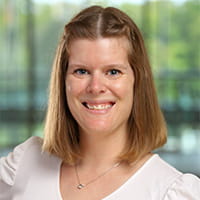 Jennifer Stancill, PhD
Jennifer Stancill, PhD
Assistant Professor
Biochemistry and Molecular Biology
Medical University of South Carolina
Charleston, South Carolina
Dr. Stancill is an assistant professor in the department of Biochemistry and Molecular Biology at the Medical University of South Carolina. A North Carolina native, she received her B.S. in biology from UNC Chapel Hill in 2011. From there, she moved to Nashville, TN, and earned her Ph.D. in Cell and Developmental Biology in 2017 from Vanderbilt University. She was mentored by Dr. Mark Magnuson, who sparked her interest in pancreatic β-cell biology. To pursue this field in more depth, she moved to Milwaukee, WI, for her postdoctoral training with Dr. John Corbett at the Medical College of Wisconsin. There, her work was focused on understanding how β-cells respond to stressors, like reactive oxygen species and inflammatory cytokines. In August 2023, Dr. Stancill moved to Charleston, SC, to start her independent lab at MUSC. She will continue to focus on understanding how β-cells function and protect themselves and how these endogenous mechanisms may be disrupted during diabetes development. She has served on the ATVB Early Career Committee since 2022, and currently serves as a liaison to the WLC.
Past Chairs of the ATVB Council’s Women’s Leadership Committee (1999–Present)
- 2022–2024: Hanrui Zhang, MB, PhD
- 2020–2022: Elena Aikawa, MD PhD
- 2018–2020: Isabella Grumbach, MD, PhD
- 2016–2018: Vas Narayanaswami, PhD
- 2014–2016: Daisy Sahoo, PhD
- 2012–2014: Nancy R. Webb, PhD
- 2010–2012: Kerry–Anne Rye, PhD
- 2008–2010: Jeanine D’Armiento, MD, PhD
- 2006–2008: Rama Natarajan, PhD
- 2004–2006: Lindsey Miles, PhD
- 2002–2004: Carole Banka, PhD
- 1999–2002: Trudy Forte, PhD